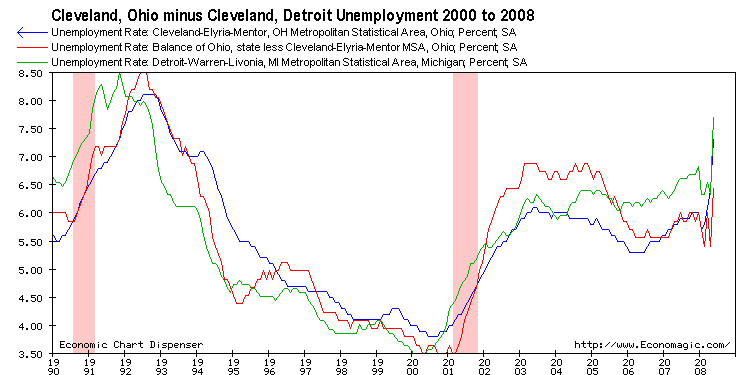Re: Housing Bubble Correction Update: Fasten your seat belts, here comes the jobs cra
We do not have Columbus and Dayton data so we created a chart to compare Cleveland and Ohio without Cleveland, plus Detroit. As you suspected, the auto recession is hurting Detroit as much as Cleveland. But even outside of Cleveland, Ohio is experiencing a big spike in unemployment.

Originally posted by dbarberic
View Post


Comment